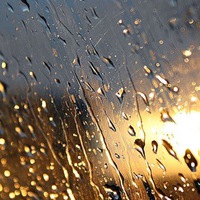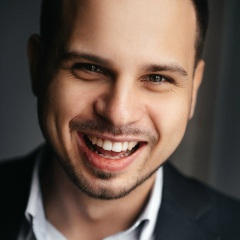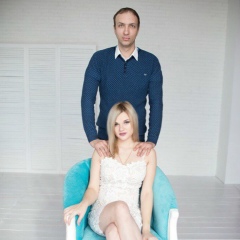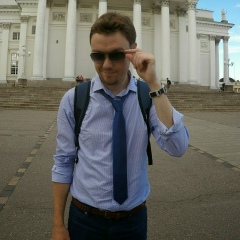Почитал западную прессу - американские и британские издания - на предмет того, как они оценивают открытие Олимпиады. Отобрал самые лакомые куски, интересующимся читать ниже. Все цитаты на английском, не знающие языка - извиняйте, нет времени переводить. В целом тональность отзывов положительная, хотя некоторые издания сосредточились исключительно на амбициях Путина и нераскрывшемся кольце.
The Time
Watching the Sochi Olympics opening ceremony could at times feel like going to the party of someone you barely knew. We were guests, but it wasn’t really about us. The ceremony, in a way like this whole Olympics, felt like a story Russia was telling the world, but most of all a story it was telling itself, about a vital, proud, storied country on the rise–and don’t worry too much about those Stalinist-purge and gay-repression things.
It began with a Russian girl’s Wonderland trip through the Cyrillic alphabet. (Why are so many Olympic opening ceremonies highly stylized children’s nightmares?) It ended with a highly selective trip through Russian history. On the way it passed troikas of horses, cosmonauts, and War and Peace. This ceremony was so thoroughly Russian you could keep it in your freezer and pour shots of it.
And its version of Russian history, especially in the 20th century, was so smoothed over you could skate on it. While the visually stunning pastiche of Russian history represented the 1917 revolution–a red locomotive amid constructivist art–it skipped over the bloody excesses of Stalinist Russia in favor of a bit of World War II and a whole lot of Soviet ’50s teenyboppers.
Reuters
The opening of the Winter Olympics was supposed to be a triumph for Vladimir Putin that ended months of criticism of the Russian president over gay rights and talk of corruption surrounding the Games.
But a technical glitch and the choice of an athlete who tweeted what was widely seen as a racist photo of U.S. President Barack Obama to light the Olympic flame meant it ended up stoking controversy.
Efforts by state television to conceal from viewers the moment when one of the five rings that make up the Olympic Games symbol failed to light up, and complaints by a singer that her music was used without permission, made matters even worse.
USA Today
Otherwise, Russian President Vladimir Putin's Games, so maligned for their $51-billion budget and grave fears of terrorism in a troubled part of the world, as well as the country's highly controversial anti-gay propaganda law, began with stunning and even delightful success. The ceremony, held indoors in the massive and very chilly Fisht Olympic Stadium, was a little bit Sydney, a lot Beijing — and all Russian. And the stadium floor came alive over and over again in superimposed pictures and designs, just like in 2008 in Beijing. As the athletes marched in from underground, their country's shape was displayed on the stadium floor, a kind of Olympic-sized Google map. These grand, hugely expensive productions might only be possible in countries like China and Russia. What democracy would allow such an expense with other bills to pay?
New York Times
If the re-narration of history in the opening ceremony occasionally involved some breezing past inconvenient episodes — the Stalinist purges that killed millions, for instance, and the gulags that imprisoned and killed millions more — the ceremony was, in many respects, the introduction to the world of a re-created Russia, one far different from the Union of Soviet Socialist Republics that hosted the Summer Games in Moscow in 1980.
The national anthem played to the crowd of 40,000 in the stadium and heard by billions more watching on television around the world was the same music played nearly 35 years ago. But the lyrics have been rewritten, with lines about “the united, mighty Soviet Union” and “the great Lenin” replaced by references to “Russia — our sacred homeland” and “wide spaces, for dreams and for living.”
In this sense, unlike the most recent comparable spectacles — London, in 2012, which celebrated enduring traditions and reveled in ironic self-deprecation, or Beijing, in 2008, which firmly declared the emergence of a new power — the Sochi ceremony was a toast to reinvention.
...
Whatever the Soviet Union’s ideological failings, the ceremony reflected a view, clearly shared by Mr. Putin, that its sheer bigness — especially its unification of Russia’s multitude of ethnicities — should be admired.
No doubt, one of the most enduring images for the audience was that of the glowing white troika, the chariot drawn by three horses immortalized in Gogol’s novel “Dead Souls.”
Voice of America
“Yes, it was really a celebration that Russia’s back, a celebration of Russian pride, stretching through 400 years of Russian history, from Peter the Great building the navy, all the way up to the Soviet cosmonauts exploring space," said Brooke. "There were ballerinas; there were references to the classical authors Tolstoy, Dostoevsky, music by Stravinsky, Tchaikovsky. Very stirring, and huge applause by the crowd of 40,000.”
After the customary lighting of the Olympic torch, an amazing fireworks show brightened the night sky with the event reaching its conclusion.
"A spectacular collection of fireworks that went off in just many minutes," said Brooke. "One person commented to me, 'I think that’s why we had a lousy fireworks display in my hometown. They sent all the fireworks to Sochi.' They just went on and on and on lighting up the Black Sea skyscape here. Really spectacular.”
The Time
Watching the Sochi Olympics opening ceremony could at times feel like going to the party of someone you barely knew. We were guests, but it wasn’t really about us. The ceremony, in a way like this whole Olympics, felt like a story Russia was telling the world, but most of all a story it was telling itself, about a vital, proud, storied country on the rise–and don’t worry too much about those Stalinist-purge and gay-repression things.
It began with a Russian girl’s Wonderland trip through the Cyrillic alphabet. (Why are so many Olympic opening ceremonies highly stylized children’s nightmares?) It ended with a highly selective trip through Russian history. On the way it passed troikas of horses, cosmonauts, and War and Peace. This ceremony was so thoroughly Russian you could keep it in your freezer and pour shots of it.
And its version of Russian history, especially in the 20th century, was so smoothed over you could skate on it. While the visually stunning pastiche of Russian history represented the 1917 revolution–a red locomotive amid constructivist art–it skipped over the bloody excesses of Stalinist Russia in favor of a bit of World War II and a whole lot of Soviet ’50s teenyboppers.
Reuters
The opening of the Winter Olympics was supposed to be a triumph for Vladimir Putin that ended months of criticism of the Russian president over gay rights and talk of corruption surrounding the Games.
But a technical glitch and the choice of an athlete who tweeted what was widely seen as a racist photo of U.S. President Barack Obama to light the Olympic flame meant it ended up stoking controversy.
Efforts by state television to conceal from viewers the moment when one of the five rings that make up the Olympic Games symbol failed to light up, and complaints by a singer that her music was used without permission, made matters even worse.
USA Today
Otherwise, Russian President Vladimir Putin's Games, so maligned for their $51-billion budget and grave fears of terrorism in a troubled part of the world, as well as the country's highly controversial anti-gay propaganda law, began with stunning and even delightful success. The ceremony, held indoors in the massive and very chilly Fisht Olympic Stadium, was a little bit Sydney, a lot Beijing — and all Russian. And the stadium floor came alive over and over again in superimposed pictures and designs, just like in 2008 in Beijing. As the athletes marched in from underground, their country's shape was displayed on the stadium floor, a kind of Olympic-sized Google map. These grand, hugely expensive productions might only be possible in countries like China and Russia. What democracy would allow such an expense with other bills to pay?
New York Times
If the re-narration of history in the opening ceremony occasionally involved some breezing past inconvenient episodes — the Stalinist purges that killed millions, for instance, and the gulags that imprisoned and killed millions more — the ceremony was, in many respects, the introduction to the world of a re-created Russia, one far different from the Union of Soviet Socialist Republics that hosted the Summer Games in Moscow in 1980.
The national anthem played to the crowd of 40,000 in the stadium and heard by billions more watching on television around the world was the same music played nearly 35 years ago. But the lyrics have been rewritten, with lines about “the united, mighty Soviet Union” and “the great Lenin” replaced by references to “Russia — our sacred homeland” and “wide spaces, for dreams and for living.”
In this sense, unlike the most recent comparable spectacles — London, in 2012, which celebrated enduring traditions and reveled in ironic self-deprecation, or Beijing, in 2008, which firmly declared the emergence of a new power — the Sochi ceremony was a toast to reinvention.
...
Whatever the Soviet Union’s ideological failings, the ceremony reflected a view, clearly shared by Mr. Putin, that its sheer bigness — especially its unification of Russia’s multitude of ethnicities — should be admired.
No doubt, one of the most enduring images for the audience was that of the glowing white troika, the chariot drawn by three horses immortalized in Gogol’s novel “Dead Souls.”
Voice of America
“Yes, it was really a celebration that Russia’s back, a celebration of Russian pride, stretching through 400 years of Russian history, from Peter the Great building the navy, all the way up to the Soviet cosmonauts exploring space," said Brooke. "There were ballerinas; there were references to the classical authors Tolstoy, Dostoevsky, music by Stravinsky, Tchaikovsky. Very stirring, and huge applause by the crowd of 40,000.”
After the customary lighting of the Olympic torch, an amazing fireworks show brightened the night sky with the event reaching its conclusion.
"A spectacular collection of fireworks that went off in just many minutes," said Brooke. "One person commented to me, 'I think that’s why we had a lousy fireworks display in my hometown. They sent all the fireworks to Sochi.' They just went on and on and on lighting up the Black Sea skyscape here. Really spectacular.”
Почитал западную прессу - американские и британские издания - на предмет того, как они оценивают открытие Олимпиады. Отобрал самые лакомые куски, интересующимся читать ниже. Все цитаты на английском, не знающие языка - извиняйте, нет времени переводить. В целом тональность отзывов положительная, хотя некоторые издания сосредточились исключительно на амбициях Путина и нераскрывшемся кольце.
The Time
Watching the Sochi Olympics opening ceremony could at times feel like going to the party of someone you barely knew. We were guests, but it wasn’t really about us. The ceremony, in a way like this whole Olympics, felt like a story Russia was telling the world, but most of all a story it was telling itself, about a vital, proud, storied country on the rise–and don’t worry too much about those Stalinist-purge and gay-repression things.
It began with a Russian girl’s Wonderland trip through the Cyrillic alphabet. (Why are so many Olympic opening ceremonies highly stylized children’s nightmares?) It ended with a highly selective trip through Russian history. On the way it passed troikas of horses, cosmonauts, and War and Peace. This ceremony was so thoroughly Russian you could keep it in your freezer and pour shots of it.
And its version of Russian history, especially in the 20th century, was so smoothed over you could skate on it. While the visually stunning pastiche of Russian history represented the 1917 revolution–a red locomotive amid constructivist art–it skipped over the bloody excesses of Stalinist Russia in favor of a bit of World War II and a whole lot of Soviet ’50s teenyboppers.
Reuters
The opening of the Winter Olympics was supposed to be a triumph for Vladimir Putin that ended months of criticism of the Russian president over gay rights and talk of corruption surrounding the Games.
But a technical glitch and the choice of an athlete who tweeted what was widely seen as a racist photo of U.S. President Barack Obama to light the Olympic flame meant it ended up stoking controversy.
Efforts by state television to conceal from viewers the moment when one of the five rings that make up the Olympic Games symbol failed to light up, and complaints by a singer that her music was used without permission, made matters even worse.
USA Today
Otherwise, Russian President Vladimir Putin's Games, so maligned for their $51-billion budget and grave fears of terrorism in a troubled part of the world, as well as the country's highly controversial anti-gay propaganda law, began with stunning and even delightful success. The ceremony, held indoors in the massive and very chilly Fisht Olympic Stadium, was a little bit Sydney, a lot Beijing — and all Russian. And the stadium floor came alive over and over again in superimposed pictures and designs, just like in 2008 in Beijing. As the athletes marched in from underground, their country's shape was displayed on the stadium floor, a kind of Olympic-sized Google map. These grand, hugely expensive productions might only be possible in countries like China and Russia. What democracy would allow such an expense with other bills to pay?
New York Times
If the re-narration of history in the opening ceremony occasionally involved some breezing past inconvenient episodes — the Stalinist purges that killed millions, for instance, and the gulags that imprisoned and killed millions more — the ceremony was, in many respects, the introduction to the world of a re-created Russia, one far different from the Union of Soviet Socialist Republics that hosted the Summer Games in Moscow in 1980.
The national anthem played to the crowd of 40,000 in the stadium and heard by billions more watching on television around the world was the same music played nearly 35 years ago. But the lyrics have been rewritten, with lines about “the united, mighty Soviet Union” and “the great Lenin” replaced by references to “Russia — our sacred homeland” and “wide spaces, for dreams and for living.”
In this sense, unlike the most recent comparable spectacles — London, in 2012, which celebrated enduring traditions and reveled in ironic self-deprecation, or Beijing, in 2008, which firmly declared the emergence of a new power — the Sochi ceremony was a toast to reinvention.
...
Whatever the Soviet Union’s ideological failings, the ceremony reflected a view, clearly shared by Mr. Putin, that its sheer bigness — especially its unification of Russia’s multitude of ethnicities — should be admired.
No doubt, one of the most enduring images for the audience was that of the glowing white troika, the chariot drawn by three horses immortalized in Gogol’s novel “Dead Souls.”
Voice of America
“Yes, it was really a celebration that Russia’s back, a celebration of Russian pride, stretching through 400 years of Russian history, from Peter the Great building the navy, all the way up to the Soviet cosmonauts exploring space," said Brooke. "There were ballerinas; there were references to the classical authors Tolstoy, Dostoevsky,
The Time
Watching the Sochi Olympics opening ceremony could at times feel like going to the party of someone you barely knew. We were guests, but it wasn’t really about us. The ceremony, in a way like this whole Olympics, felt like a story Russia was telling the world, but most of all a story it was telling itself, about a vital, proud, storied country on the rise–and don’t worry too much about those Stalinist-purge and gay-repression things.
It began with a Russian girl’s Wonderland trip through the Cyrillic alphabet. (Why are so many Olympic opening ceremonies highly stylized children’s nightmares?) It ended with a highly selective trip through Russian history. On the way it passed troikas of horses, cosmonauts, and War and Peace. This ceremony was so thoroughly Russian you could keep it in your freezer and pour shots of it.
And its version of Russian history, especially in the 20th century, was so smoothed over you could skate on it. While the visually stunning pastiche of Russian history represented the 1917 revolution–a red locomotive amid constructivist art–it skipped over the bloody excesses of Stalinist Russia in favor of a bit of World War II and a whole lot of Soviet ’50s teenyboppers.
Reuters
The opening of the Winter Olympics was supposed to be a triumph for Vladimir Putin that ended months of criticism of the Russian president over gay rights and talk of corruption surrounding the Games.
But a technical glitch and the choice of an athlete who tweeted what was widely seen as a racist photo of U.S. President Barack Obama to light the Olympic flame meant it ended up stoking controversy.
Efforts by state television to conceal from viewers the moment when one of the five rings that make up the Olympic Games symbol failed to light up, and complaints by a singer that her music was used without permission, made matters even worse.
USA Today
Otherwise, Russian President Vladimir Putin's Games, so maligned for their $51-billion budget and grave fears of terrorism in a troubled part of the world, as well as the country's highly controversial anti-gay propaganda law, began with stunning and even delightful success. The ceremony, held indoors in the massive and very chilly Fisht Olympic Stadium, was a little bit Sydney, a lot Beijing — and all Russian. And the stadium floor came alive over and over again in superimposed pictures and designs, just like in 2008 in Beijing. As the athletes marched in from underground, their country's shape was displayed on the stadium floor, a kind of Olympic-sized Google map. These grand, hugely expensive productions might only be possible in countries like China and Russia. What democracy would allow such an expense with other bills to pay?
New York Times
If the re-narration of history in the opening ceremony occasionally involved some breezing past inconvenient episodes — the Stalinist purges that killed millions, for instance, and the gulags that imprisoned and killed millions more — the ceremony was, in many respects, the introduction to the world of a re-created Russia, one far different from the Union of Soviet Socialist Republics that hosted the Summer Games in Moscow in 1980.
The national anthem played to the crowd of 40,000 in the stadium and heard by billions more watching on television around the world was the same music played nearly 35 years ago. But the lyrics have been rewritten, with lines about “the united, mighty Soviet Union” and “the great Lenin” replaced by references to “Russia — our sacred homeland” and “wide spaces, for dreams and for living.”
In this sense, unlike the most recent comparable spectacles — London, in 2012, which celebrated enduring traditions and reveled in ironic self-deprecation, or Beijing, in 2008, which firmly declared the emergence of a new power — the Sochi ceremony was a toast to reinvention.
...
Whatever the Soviet Union’s ideological failings, the ceremony reflected a view, clearly shared by Mr. Putin, that its sheer bigness — especially its unification of Russia’s multitude of ethnicities — should be admired.
No doubt, one of the most enduring images for the audience was that of the glowing white troika, the chariot drawn by three horses immortalized in Gogol’s novel “Dead Souls.”
Voice of America
“Yes, it was really a celebration that Russia’s back, a celebration of Russian pride, stretching through 400 years of Russian history, from Peter the Great building the navy, all the way up to the Soviet cosmonauts exploring space," said Brooke. "There were ballerinas; there were references to the classical authors Tolstoy, Dostoevsky,







У записи 27 лайков,
4 репостов.
4 репостов.
Эту запись оставил(а) на своей стене Алексей Цой












































